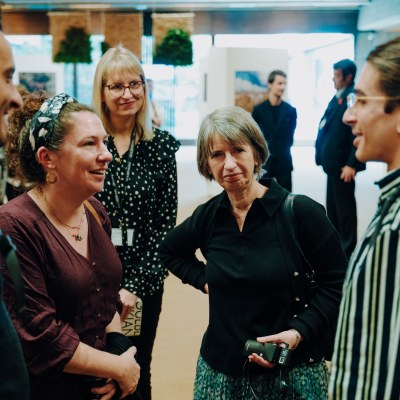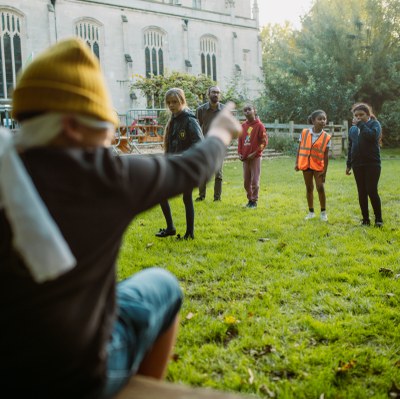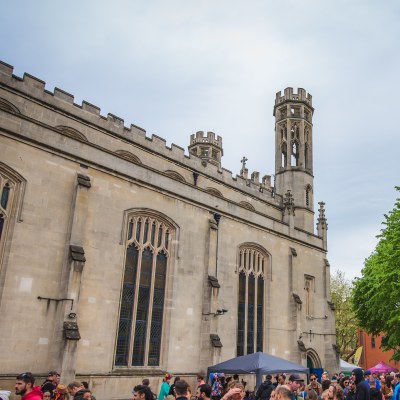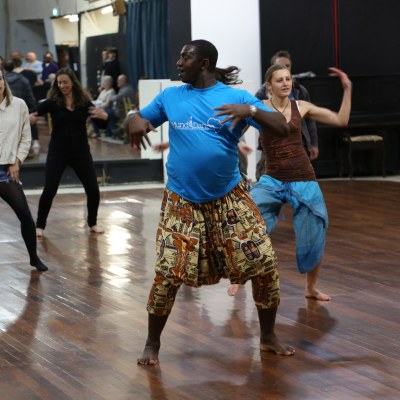Opinion: Voices in Decision-Making
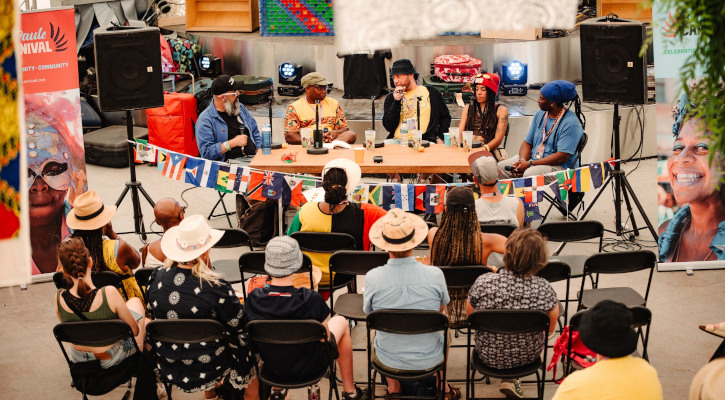
St Pauls Carnival Panel Discussion at Glastonbury Festival 2024 - Image Credit: Khali Ackford
Trinity is committed to creating ways in which citizens can take an active role in shaping arts and culture. As part of this commitment we are connecting with leading voices in the cultural sector to ask them to share their thoughts on the different civic and democratic tools that we as citizens can access. In the second in our series of opinion pieces exploring civic participation LaToyah McAllister-Jones, Executive Director of St Pauls Carnival, reflects on her experiences of using various tools to facilitate democratic decision-making.
Opinion: Voices in Decision-Making, LaToyah McAllister-Jones
I have always been attracted to work and play that enables people to have a voice. To be heard. After years of working with marginalised groups, from managing accommodation services for street homeless people to community organising in Hackney, I have developed an interest in the right to influence decisions being made about our lives.
One of the most interesting things about leading a community arts organisation is just how integral the community is to our work. St Pauls Carnival CIC is merely a custodian for the iconic event; we provide a stage and the community fills those spaces. Carnival celebrates African Caribbean talent in St Pauls and beyond as well as our culture and heritage. Our communities continue the traditions of our ancestors using music, dance and storytelling to share lived experiences and connect to our heritage. This is one of the most important things about our event: it allows us to tell our own stories, in our own words, using our voices.
In 2021, I was asked by Involve to facilitate Bristol City Council's Citizens’ Assembly supporting policy development in housing, health inequalities and transport as the city emerged from Covid. The process was new to me, and I loved the way it cut through many of the challenges that we often come up against when engaging communities:
- Participants are randomly selected, and usually aren’t experts in the central assembly topic. There is a process to ensure that all participants are able to meaningfully contribute to the discussions, and this is critical to the success of an assembly.
- The process seeks to facilitate consensus, rather than debate which tends to have a winner and a loser.
- Participants are encouraged to explore what their real priorities are and what they might be prepared to forego for those priorities.
- Assemblies bring together a diverse range of people who you wouldn’t necessarily find together in a traditional social setting. This creates an opportunity for vastly differing viewpoints to be heard and influence how others participants might think about a topic.
St Pauls Carnival are currently delivering a Citizens’ Assembly for Culture in partnership with Trinity Community Arts, Citizens In Power and West Of England Combined Authority. The idea developed just as we were coming out of the pandemic and thinking about the lessons learnt; particularly the role of community. Together, we were curious about what it would look like to use the assembly process - democratic, person-centred and thinking about strengths of a place, its people and its assets - to reimagine what the cultural offer could look like in the South West region.
Democratic decision-making allows citizens to actively contribute to the discourse that shapes their communities. We also believe culture is experienced by everyone, in many different ways, and everyone should be able to access the culture that represents them. If this is to be the ambition, it is vital that we put people at the centre of that process. This means understanding how people experience culture, what it means to them and, as cultural leaders, asking ‘how can we reflect this in our approach and programming?’
The new Labour Government expressed an interest in the use of Citizens’ Assemblies earlier this year, and the format has been used to unpack challenging issues like abortion in Ireland. The South West region is already embedding this approach into how we speak to our communities, and we are at the forefront of using assemblies to understand how we deliver for everyone, and not just those who can afford it or who have easy access to culture.
Our Citizens’ Assembly for Culture project offers an exciting opportunity to create a new approach to engaging people in the cultural life of a place. The Assembly will take place in Spring 2025 as a central programme within Culture West, funded by the West of England Combined Authority and Arts Council South West. The recommendations coming from this Assembly will become part of the regional approach to delivering a citizen-led cultural offer.
Find out more about the Citizens' Assembly for Culture project:
- Read the first piece in this series about civic participation: Edson Burton’s exploration of why voting matters
- Sign up to an online information session with the Citizens' Assembly team
- Email Imogen@trinitybristol.org.uk to join our Citizens For Culture mailing list
- Read our blogs to find out more about the Citizens' Assembly project




